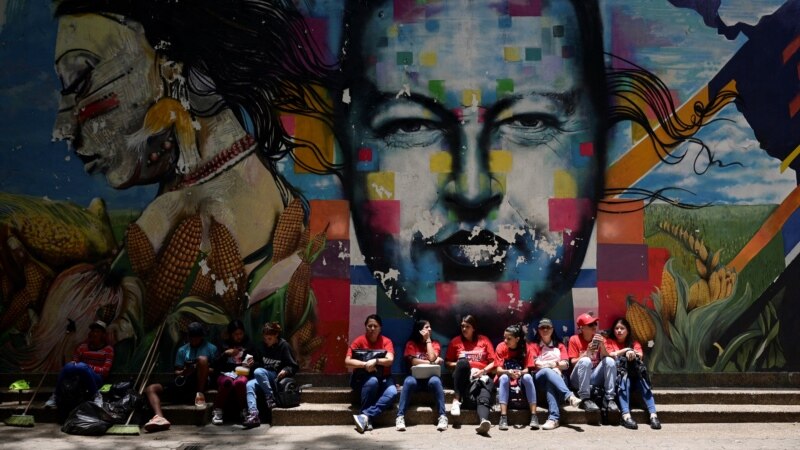
The personal sanctions against 16 Venezuelan judges, police chiefs and military officers announced Thursday by the United States mark the beginning of a “club phase” against members of Nicolás Maduro’s government, according to analysts.
Benjamin Gedan, director of the Latin American program at the Wilson Center, emphasizes the differences between economic sanctions, which “have not produced the expected results” and “have contributed to worsening the migration crisis,” and individual sanctions, which “avoid impacts on the population.”
“They are unlikely to change the behaviour of the authorities, but at least they provide some degree of justice for the victims of the regime,” he told the Voice of America.
In his view, they can have “a deterrent effect” for those with family or financial ties in the United States. “Some may wear these sanctions as a badge of honour, but for many they represent a ‘civil death’,” he says.
Gedan, however, points out that the announced package of punishments, “almost unprecedented,” does not hide the fact that the Maduro government “is more consolidated than ever” after the controversial election results and the subsequent repression.
Positive or negative measure?
The individual sanctions announced on Thursday are “something extremely positive” for Venezuelans and “extremely negative” for Maduro’s collaborators, according to political scientist Walter Molina Galdi from Argentina.
Washington believes that by imposing individual sanctions and issuing bans on nearly 2,000 officials, it is sending a message to the political power in Caracas about the consequences of its electoral actions and potential crimes against humanity.
“The period in which Lula led the negotiations is over and the period of the club begins,” he says, referring to the previous month and a half in which the presidents of Brazil, Colombia and Mexico made arrangements with Maduro to present evidence of his victory.
The United States notes that the “costs of permanence” of Chavismo in power are increasing after the controversial results announced by the Venezuelan electoral authority, diagnoses Molina Galdi. These sanctions, he believes, are part of “strong, effective and coordinated pressure” from the international community regarding the crisis in Venezuela.
María Alexandra Semprún, a political scientist and university professor in the South American country, believes that the measures announced by the United States “put the global spotlight” on the officials in question, categorizing them as “criminals” with serious charges.
At the same time, he believes, they make their decisions and even negotiations in which their names are mentioned “invalid.”
“Since they are discredited, they have no power to negotiate or make agreements on behalf of Venezuela. Every act signed by one of them is invalid, void and legal,” he said.
Is a negotiation being paved the way?
Piero Trepiccione, also a Venezuelan political scientist, interprets the individual sanctions as “chess moves” that seek to “force the bar” for negotiations between the parties in conflict in Venezuela following the presidential vote.
A stage is opening up where there are once again conflicting positions. There is a relaunching of positions of strength on both sides in order to reach a favorable climax to reach a negotiation,” the specialist told the newspaper. VOA.
The fact that the United States has not targeted Venezuelan state financial operations with sanctions reflects the “symbolic nature” of the measures in view of future agreements, which are currently focused on government officials, Trepiccione concludes.
Connect with the Voice of America! Subscribe to our channels YouTube, WhatsApp and to newsletter. Turn on notifications and follow us on Facebook, X and Instagram.


![[Img #74664]](https://thelatestnews.world/wp-content/uploads/2024/12/James-Watson-The-controversial-genius-behind-the-double-helix-150x150.jpg)










Add Comment